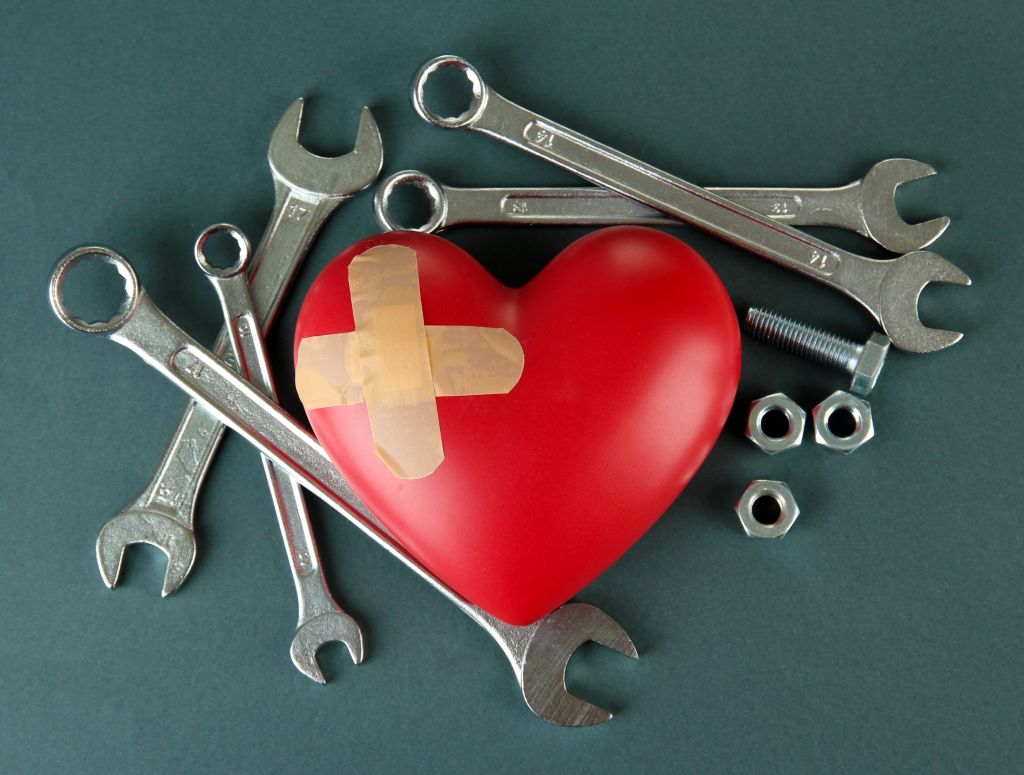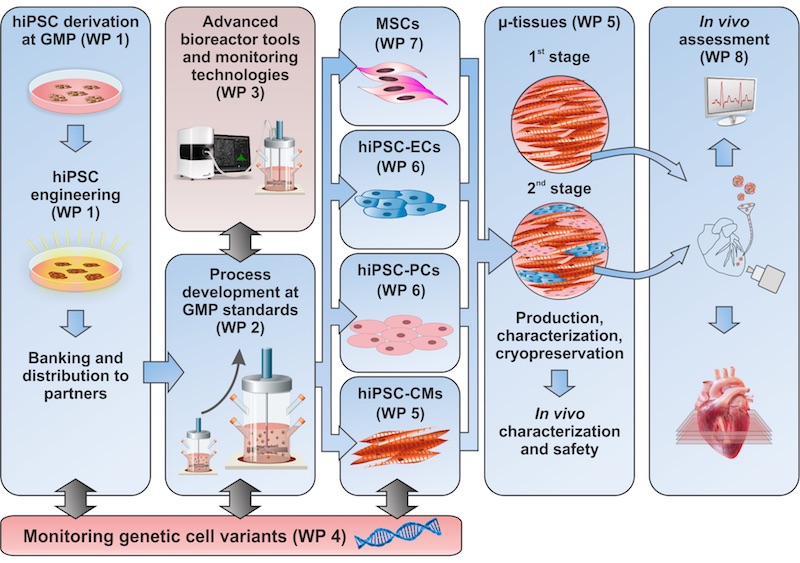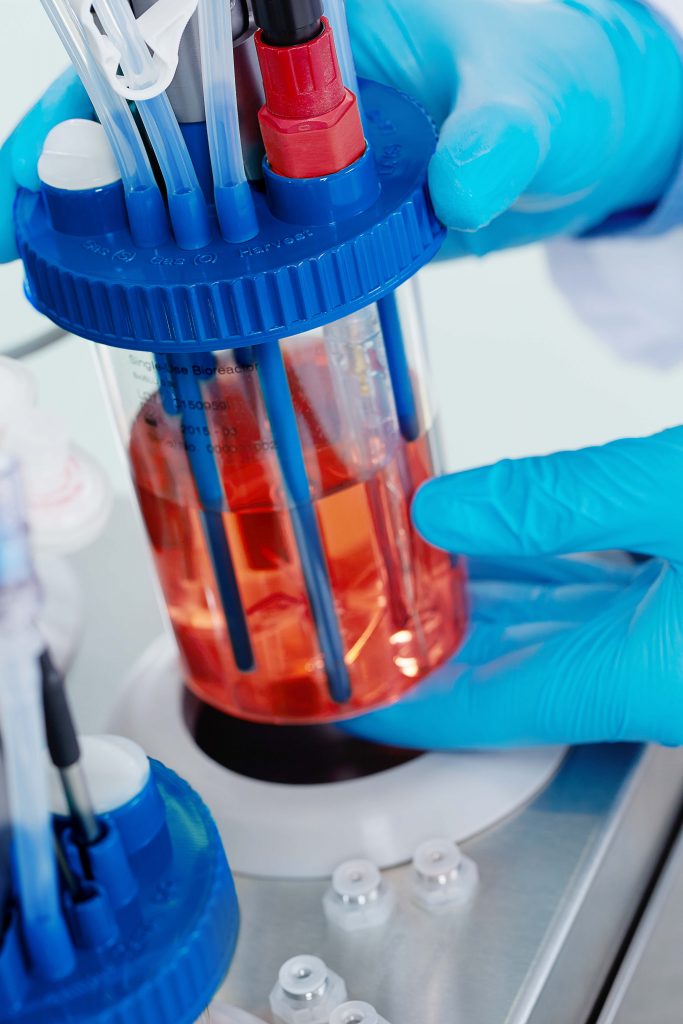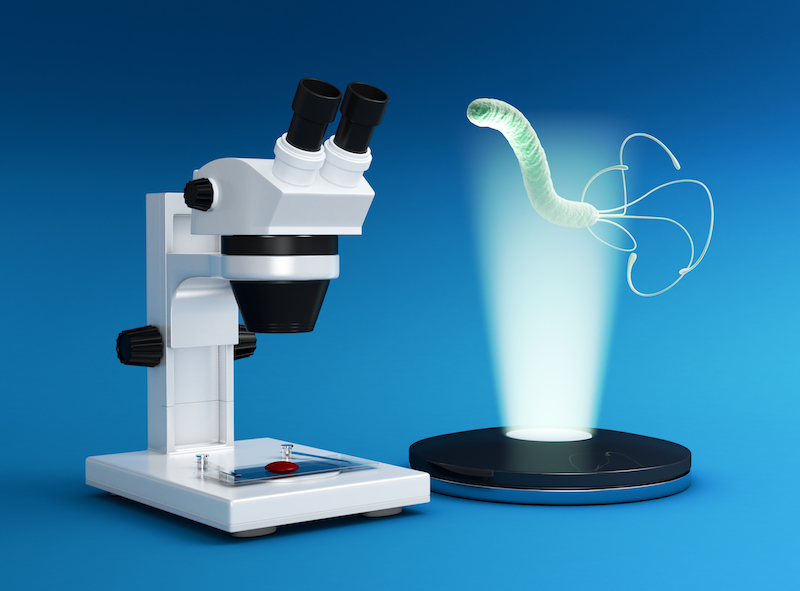Newsletter Signup - Under Article / In Page
"*" indicates required fields
Eppendorf joins a Horizon 2020 consortium to support bioreactor development for stem cell cultivation for heart attack patients.
Stem cells have huge potential to treat or even cure a wide variety of medical conditions. Efforts to mitigate damage after a heart attack with stem cells are making a lot of progress. Researchers have successfully grown millimetre-long muscle fibers from stem cells, which could be used to repair an organ like the heart muscle.
This field is not yet very crowded, but given that cardiovascular diseases are the leading cause of premature death worldwide, opportunities for upstarts abound.
However, companies trying to make their mark in the arena will have to confront the practicalities of producing stem cell therapies on a large scale. Coaxing large populations to grow and managing their conditions to sustain the process aren’t easy!

This is where Eppendorf comes in. As part of an EU-funded Horizon 2020 research project, Technologies for Breakthroughs in Heart Therapies, nicknamed ‘TECHNOBEAT‘, the company aims to contribute to the development of more efficient methods than the traditional flask- and dish-based procedures of producing human induced pluripotent stem cells (hiPSCs).
The broad differentiability and unlimited expandability of hiPSCs make them attractive for organ repair. One of the challenges is producing them in large enough quantities. Within the TECHNOBEAT project, Eppendorf is developing bioreactors to help to solve this problem.

How many cells are needed for stem cell treatments?
Stem cell therapies require a lot of cells: one dose takes anywhere from 100K to 10Bn of them! That scale presents enormous technical challenges that TECHNOBEAT aims to address.
This includes advancing the bioprocesses for therapeutic-scale production of hiPSCs and their functional cardiac progeny. Researchers involved in the project have already been able to cultivate hiPSCs in a stirred-tank bioreactor from Eppendorf with a working volume of 100 mL. Now Eppendorf plans to adapt the design to larger bioreactors with a working volume of 1 L and larger.

Ok, so it’s a bigger pot. Is that it?
Flasks and dishes have very limited capacity, but it’s also very difficult to monitor and control process parameters. It is critical to manage variables like dissolved oxygen and pH because slight errors can influence the stem cells‘ behavior. If critical process parameters are even slightly off, the whole culture could fail!
Bioreactors offer the capability to control these variables to mitigate failures. Eppendorf will furthermore create novel impeller and vessel designs to optimize culture mixing. These features work together to optimize culture performance but also improve reproducibility.
Eppendorf is also planning to collaborate with OVIZIO to add on a holographic microscope. This can deliver valuable information on the cells’ state, and real-time communication of the data to the bioprocess control software provides additional possibilities for automated bioprocess control based on these data.

In addition to OVIZIO Imaging Systems, the Eppendorf team, led by Katharina Kinast, is collaborating with Hannover Medical School, which is coordinating the project consortium. Other members of the project consortium are the Leiden University Medical Center, the University of Sheffield, the University Medical Center Utrecht, Kadimastem LTD, and the Paracelsus Medical University.
These partners complement Eppendorf‘s expertise as an industry-leading supplier of bioreactors for the cultivation of hiPSCs. We have no doubt the consortium will bring its collective effort to bear and aid in the treatment of heart failure!
If you want to know more about bioreactors to scale up your stem cell cultures, drop Eppendorf a line at bioprocess-info@eppendorf.de !
Featured Image: Veleri/shutterstock.com; Africa Studio/shutterstock.com ; TECHNOBEAT Consortium ; borzywoj/shutterstock.com ; lucadp/shutterstock.com






